While it takes a full 60 minutes to determine the winner of an NFL game, each fifteen-minute quarter presents a battle within the battle with its own enclosed narrative. With the exception of timeouts, once the quarter starts each team is going to have eleven men on the field at all times, limiting opportunities for coaches to reset the narrative.
This ability to control the game, whatever that means to the team in question, is a major determining factor in games and, often, the third quarter is the inflection point in which a team can begin to separate itself from its opponent and establish that the game belongs to them.
Simply put, the third quarter is a time in the game where winning teams assert themselves. And, while the Carolina Panthers remain a winning team at 3-1, they have not yet proven to be an assertive third quarter team.
In fact, they’ve been quite the opposite.
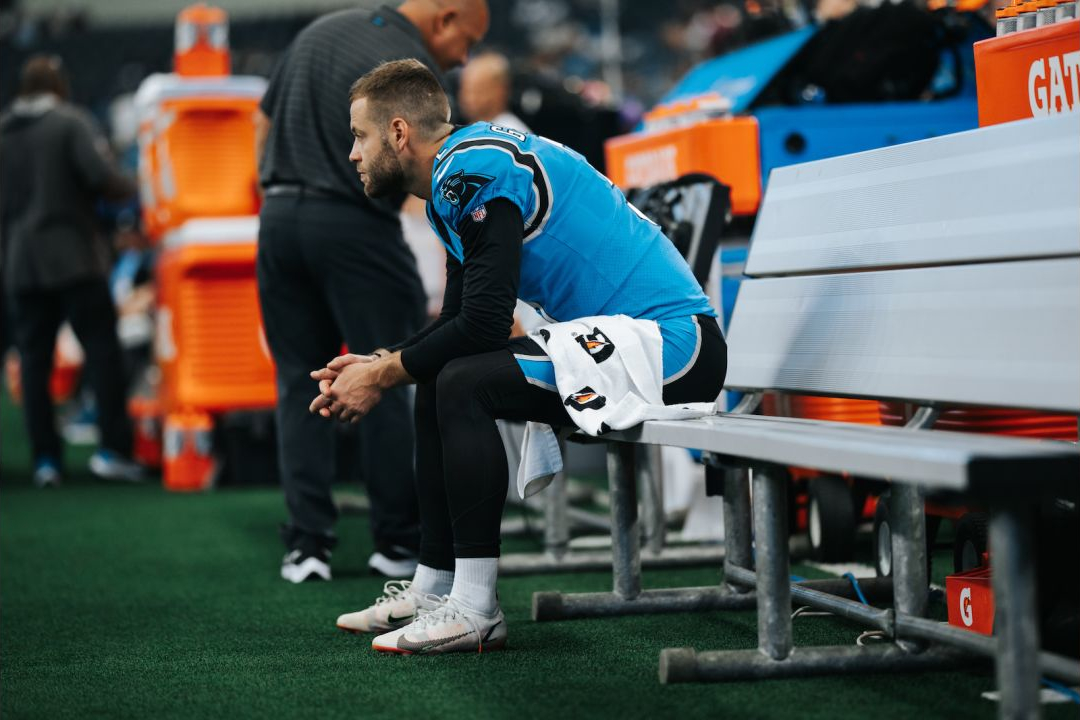
Photo Credit: Chanelle Smith-Walker/Carolina Panthers
In Week 4’s game between the Panthers and the Dallas Cowboys, the third quarter proved to be the point where what had been a tight game began to devolve into something quite different. After a drive to the Cowboys’ 36-yard line resulted in the Panthers going empty-handed when kicker Zane Gonzalez missed a 54-yard field goal, things began to snowball quickly as an opportunistic Cowboys team preyed upon the Panthers to score three third quarter touchdowns.
Though they managed to hold the Cowboys to a field goal on a third-down play to end the quarter, by the time the Cowboys opened the fourth quarter by converting the attempt the score line had already changed beyond recognition.
From a 14-13 halftime lead, the Panthers now trailed 14-36.
Though the Panthers were able to claw back some dignity, and some tension, with two scores to make it a one-score game in the end, the game was all-but-concluded when they took the field for the start of the fourth quarter.
If this was an isolated incident, Carolina might have been able to chalk up things up to the circumstances of their first loss: Pass protection issues leading to sacks, two killer interceptions thrown by quarterback Sam Darnold, and the defense playing powerless against a mighty Cowboys offense. The problem is, the Panthers’ third quarter issues against Dallas were a continuation of a trend that has plagued the team in the early days of Matt Rhule’s tenure as head coach.
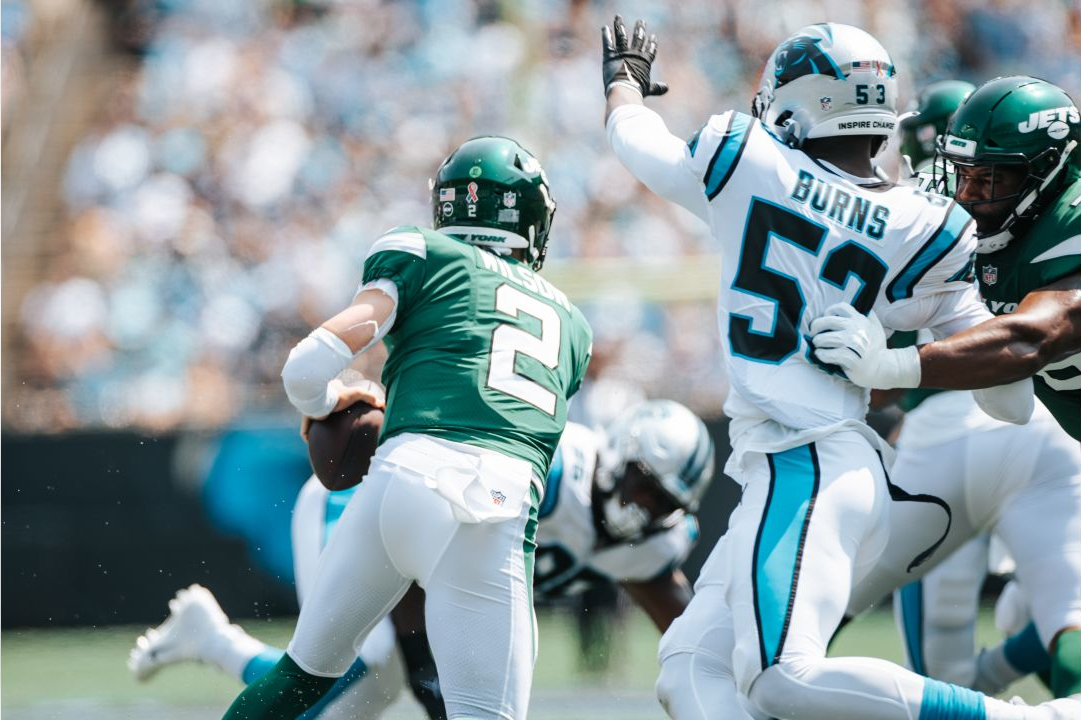
Photo Credit: Chanelle Smith-Walker/Carolina Panthers
In 2020, the Panthers were generally flat in the third quarter, and saw several games they otherwise contended in get away from them in that timeframe – Most notably in Week 10 where a 17-17 game began to turn into a 46-23 blowout by the Tampa Bay Buccaneers.
In Week 1 of this season, the Panthers took a 0-16 lead into the half, but failed to make any impression at all in the third quarter which allowed the Jets’ offense to slowly drag themselves back into the game by way of an eleven-point run to close the gap to 11-16 by the end of the third quarter.
Against the Saints in Week 2, the Panthers again failed to register a point on offense all quarter and, while the Saints also didn’t manage to score, they finished the quarter on the Panthers’ 1-yard line from where they would score two plays later, closing a 0-17 halftime lead to a 7-17 score.
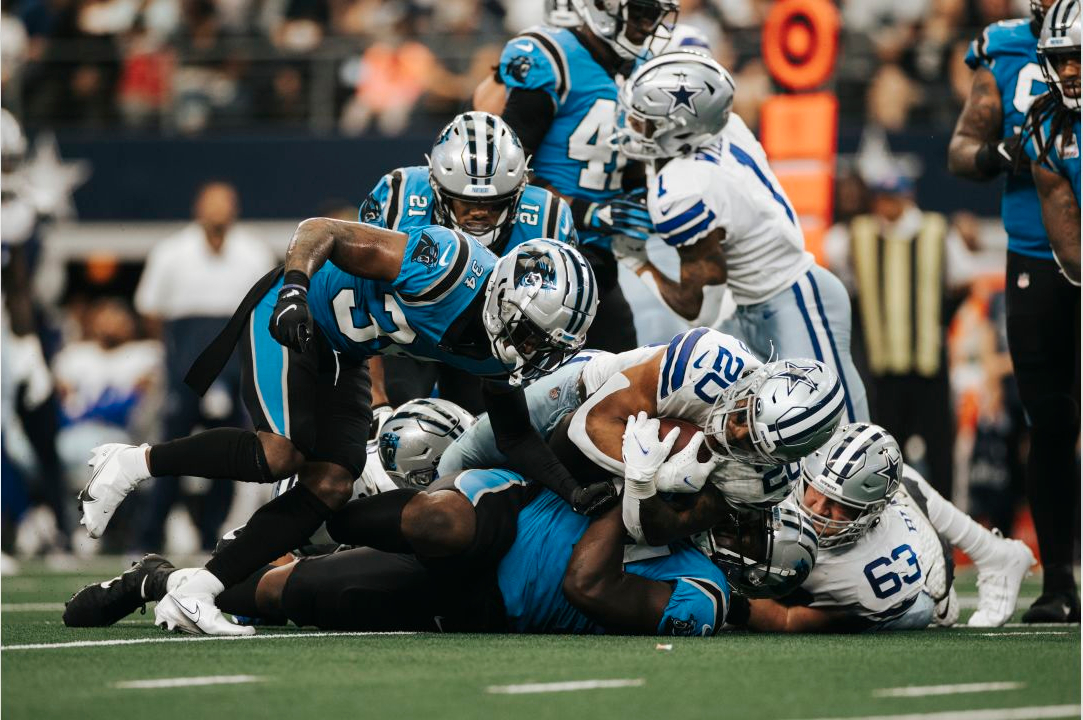
Photo Credit: Chanelle Smith-Walker/Carolina Panthers
In all, the Panthers enter Week 5’s matchup with the Philadelphia Eagles saddled with a -21 point differential in the third quarter (28 points allowed, 7 points scored) and, while the Panthers were able to get away with it against a rebuilding Jets team and a “yo-yo” Saints team that’s now 2-2, the third quarter terrors caught up to them last week against Dallas – Leaving Matt Rhule to have to go back to the drawing board on a recurring problem coming out of halftime.
“I felt like we had done better coming out of the half,” said Rhule earlier this week. “It’s been something that’s bothered us for a while. It’s like anything else, if I knew how to fix it then it would be already fixed. So I just keep chipping away at it.”
Contributing to Rhule’s disappointment was his belief that the Panthers had made strides in that part of the game during their Week 3 victory over the Houston Texans. After a lull following their first quarter touchdown, Carolina scored on both of their third quarter possessions, giving them the breathing room they needed to cruise to a 3-0 start.
While the Panthers earned credit for beating a team that they should have beaten, their Week 3 triumph became somewhat less impressive in Week 4 when the gap between the Texans and the top teams in football was clearly illustrated. After losing to the Panthers 24-9, the Texans were blanked in a 40-0 blowout loss to the Buffalo Bills that saw quarterback Davis Mills throw four interceptions, get sacked three times, and fumble once (By comparison, Mills did not once turn the ball over against Carolina, though he took the same number of sacks and recovered two fumbles).
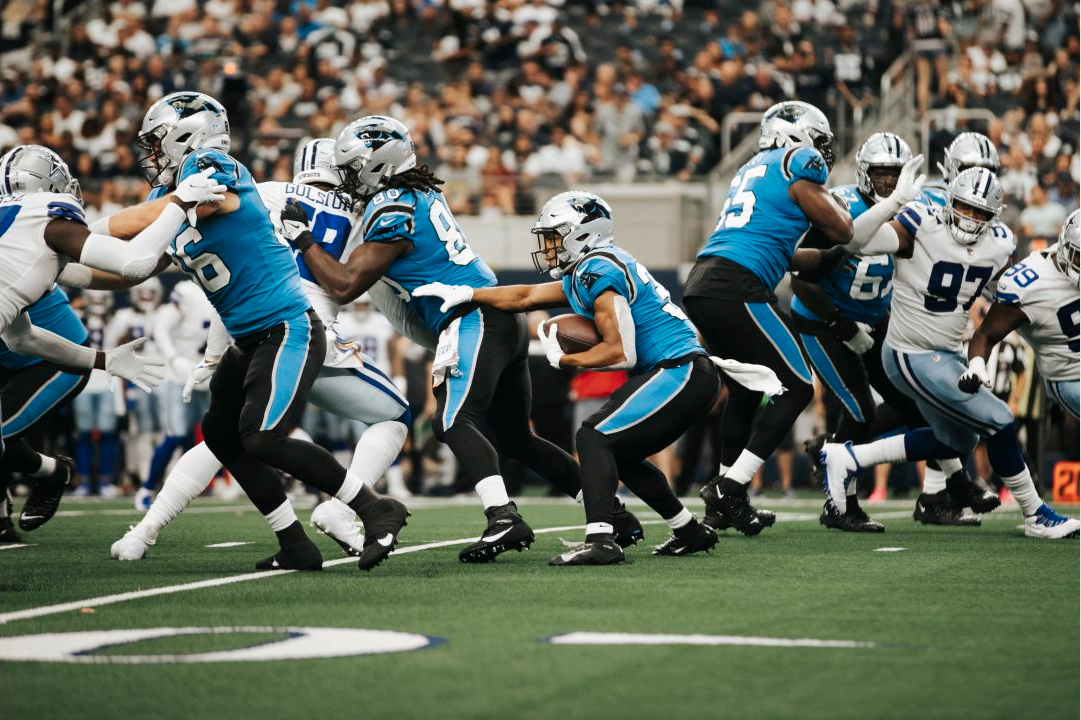
Photo Credit: Chanelle Smith-Walker/Carolina Panthers
Against a tougher opponent in the Cowboys, the Panthers’ Week 4 performance suggested that they may not have made the third quarter strides they had hoped. In the face of this problem, the first – and easiest – assumption has been that the Panthers have failed to make the halftime adjustments necessary to stay ahead of their opponents and respond to in-game changes.
However, another culprit can also be pointed to that can best be summarized by a familiar phrase: Missed opportunities.
In assessing the start of the third quarter, Rhule pointed to the biggest play of the quarter’s opening drive – a 39-yard catch-and-run by D.J. Moore – arguing that Moore’s big gain could have ended up being a touchdown had other members of the Panthers’ offense held their blocks downfield better. Instead of seven points, which would have given the Panthers an eight-point lead and the opportunity to dictate the terms of the quarter to the Cowboys, Carolina instead ended up with a missed field goal that gave Dallas good field position, which they quickly capitalized on.
“We moved the ball right down the field and then missed that field goal and kind of let go of the rope a little bit,” lamented Rhule. “But it’s something that we’ll just continue to work on.”
At 3-1, the Panthers continue to stand as one of the better teams in the first half of the 2021 season and have the breathing room necessary to rectify what issues they have as a team. However, identifying those problems and eliminating them are two different matters, and their ability to do the latter will go a long way in determining the sort of team they can become.
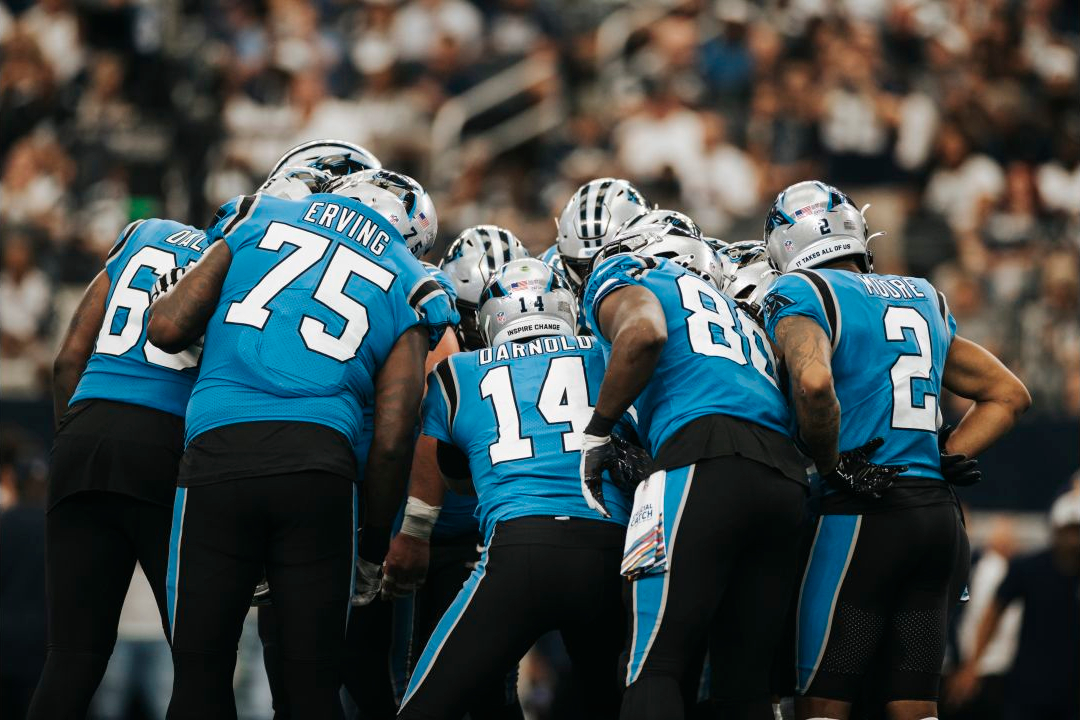
Photo Credit: Chanelle Smith-Walker/Carolina Panthers
The way the Panthers have woken up after the third quarter, at least, has been a start: In the fourth quarter of games this season, Carolina has thwarted comeback attempts by the Jets and Saints, put away the Texans, and showed some fight in getting what could have been a Week 4 blowout back to a one-score game with 4:31 left to play – Though they were unable to generate a stop to get the ball back.
Combine that with how they’ve led at the half in all four games so far, the Panthers have at least proven to have 45 minutes of the game of football figured out. Now, perhaps the chief point of emphasis on Matt Rhule’s agenda is figuring out the remaining 15: That crucial time out of the half where the Panthers can begin to grasp victory in their hands, rather than simply running their hands over it and feeling it out.
“We want to be a 60-minute team,” said Rhule. “I like who we are in the fourth quarter. We just need to carry that over coming out of the half.”
(Top photo via Chanelle Smith-Walker/Carolina Panthers)

